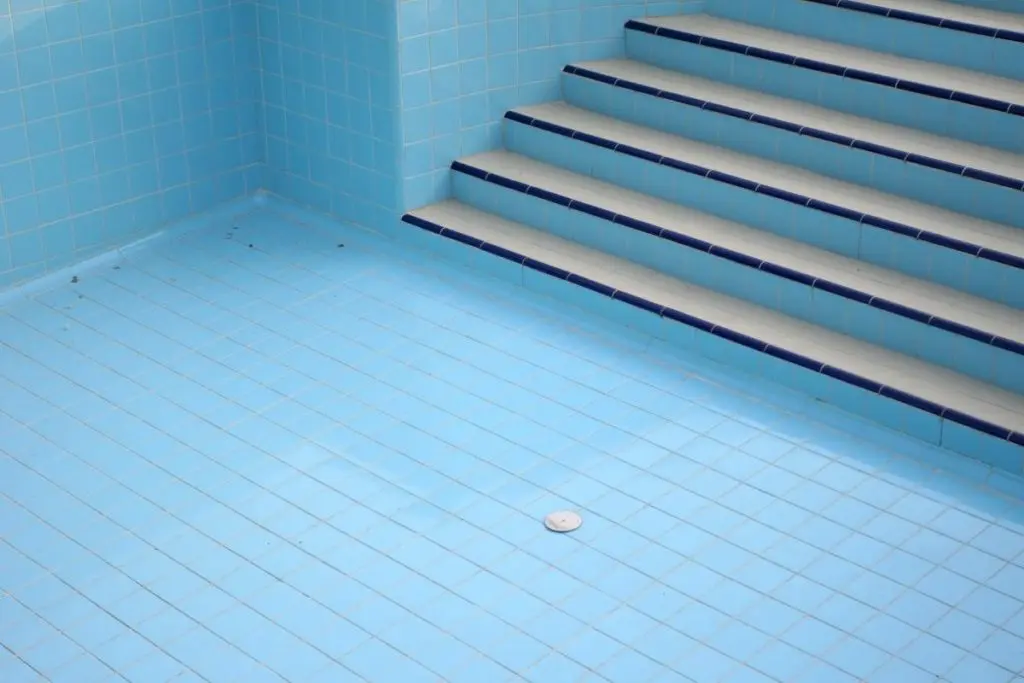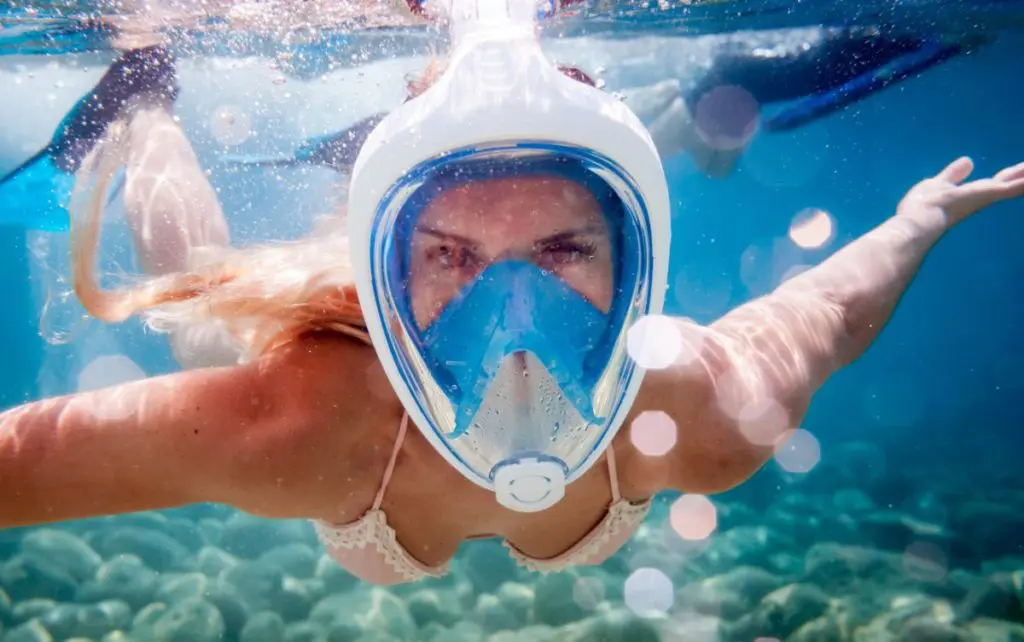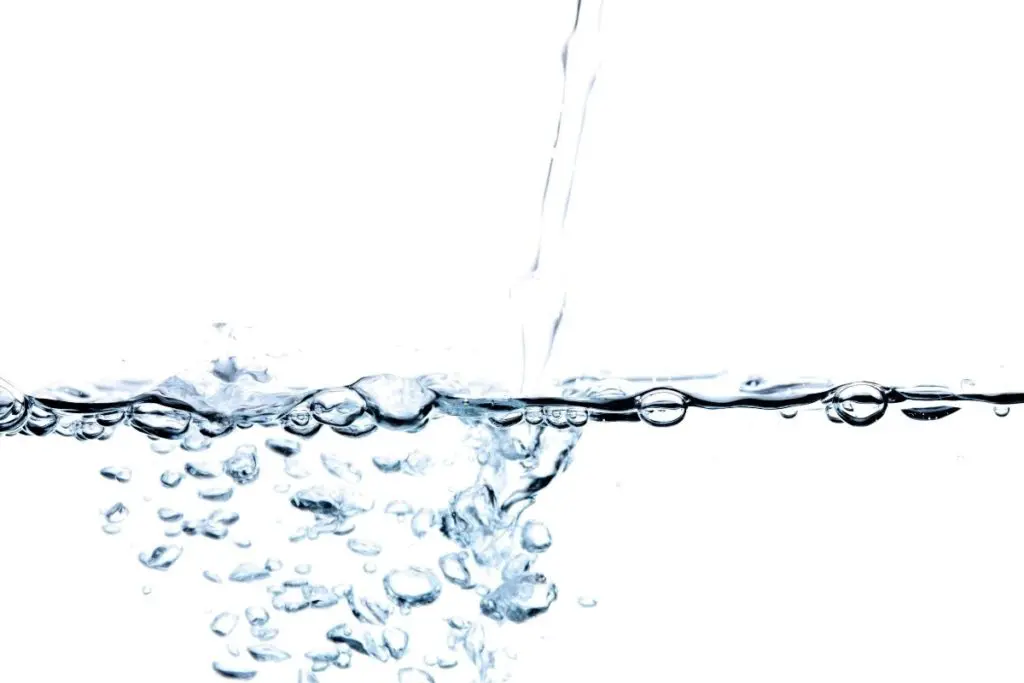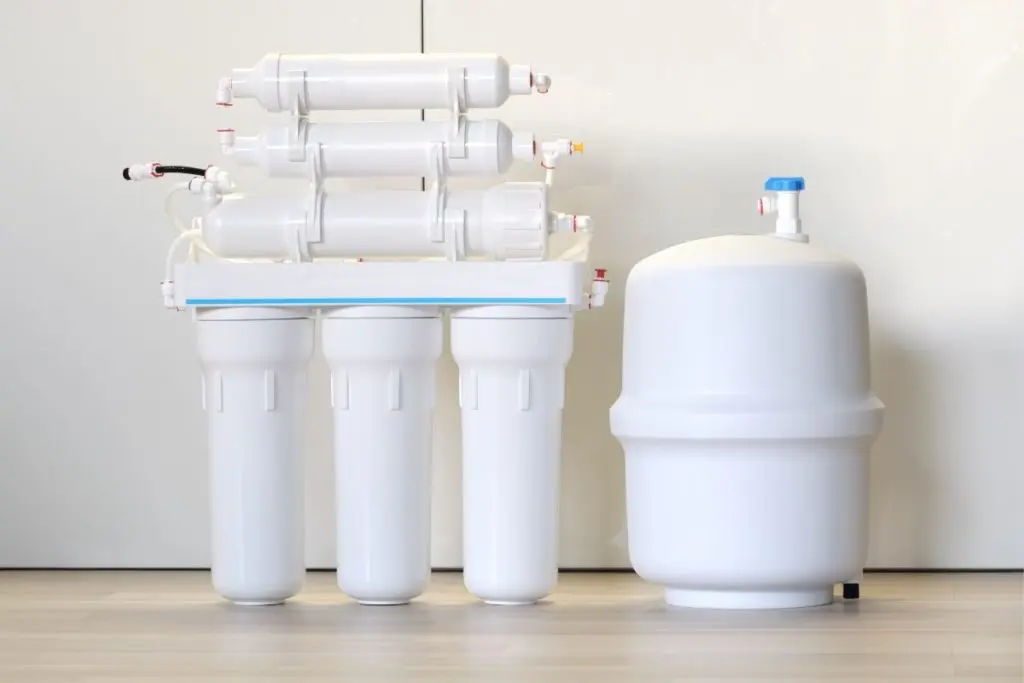So you want to go for a swim? Maybe you’re wondering how saltwater pools differ from chlorine pools. Or maybe you want to learn more about the benefits of going to a salt water pool rather than a more traditional pool experience.
It’s no wonder that saltwater pools are having a moment: they’re more eco-friendly, easier to maintain, and generally feel better. Not to mention they offer many health benefits you may not even know about.
First, let’s take a quick look at some salt water basics. Then we’ll reveal the top 5 benefits of saltwater pools.
What is a Saltwater Pool?
A lot of people think that a saltwater pool mimics the experience of swimming in the ocean. Not quite. Really, the term is more related to its sanitation equipment than the sea.
Both traditional pools and saltwater pools use chlorine to eliminate harmful microbes in the water. But instead of adding chemicals, a saltwater pool uses an electrolytic chlorine generator, or ECG, to convert salt into chlorine. Since it does this very steadily, there are lower levels of chloramines, and there isn’t any chlorine odor.
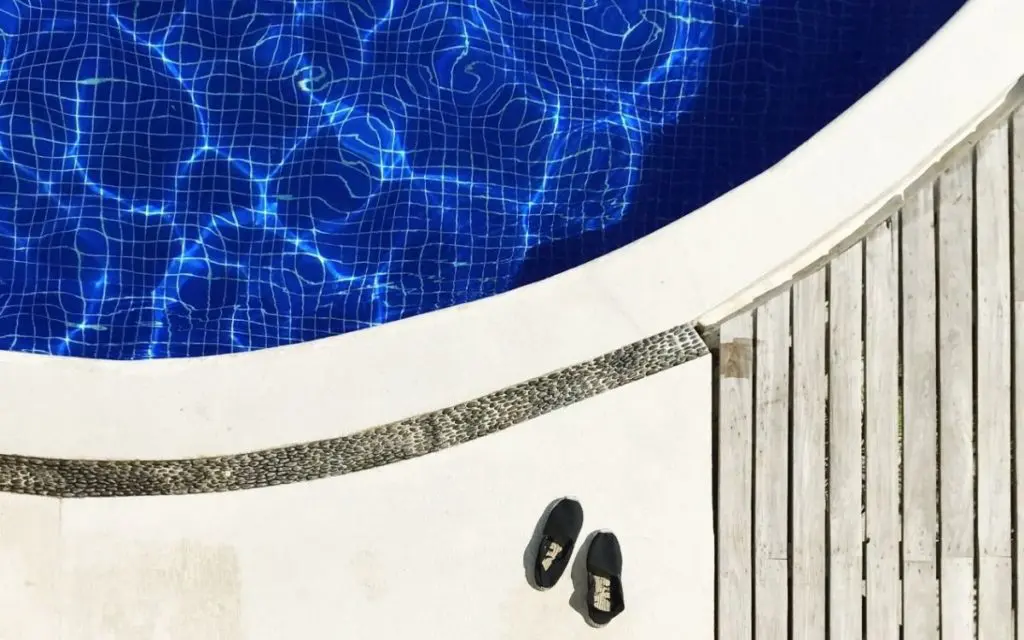
5 Main Benefits of Salt Water Pools
What are the benefits of a salt water pool? The short answer to that question is: many benefits including health, smell, feel, maintenance, and they are better for the environment! Whether you’re looking for a healthier choice, or you’re interested in other benefits, like maintenance or cost — we’ve done the research for you.
The following is a roundup of the top 5 benefits of saltwater pools.
1
Salt water pools have more health benefits
If you’re here for the health perks, saltwater pools have those in spades. Here are some of the biggest health benefits of a salt water pool:
- Salt water is (much) gentler on your skin, hair and eyes.
We know that heavily chlorinated water is murder on hair. Who hasn’t had a teenage summertime disaster, emerging from the pool with brittle scarecrow hair, or even worse, discovering that your awesome new blonde highlights had suddenly turned green? As distressing as a bad hair day is, at least it’s largely cosmetic.
More serious are chlorine’s consequences on your skin. It’s not unusual to experience super dry, itchy, or irritated skin after swimming in a traditional pool. If you’re especially sensitive, you may even experience a rash or more severe skin reaction. This is where the benefits of salt water for skin really come into focus. Salt water can help your skin balance and retain moisture and acts as a natural exfoliant, softening skin and aiding in removing dead skin cells. It draws out impurities and can even help prevent clogged pores. In fact, salt water helps soothe various skin issues, like psoriasis, eczema, or acne.
Salt water is also gentler on the eyes. Since the salinity of a saltwater pool is comparable to that of human tears, they cause far less stinging. Swimming in a saltwater pool means you don’t have to worry about keeping your eyes shut while you’re paddling along — and you’re also much less likely to surface with red or irritated peepers.
- Salt water can help ease stress.
It’s not unlike putting Epsom salts in your bath water for a relaxing soak. Or immersing yourself in a float tank to promote feelings of peace and relaxation. The bromide in salt water is especially helpful in easing joint and muscle pain, or preventing soreness after a workout.
- Salt water can help reduce allergies and promote easier breathing.
Overall, saltwater pools are clearly a better choice for those with health sensitivities or allergies.
But here’s a lesser-known fact: regularly inhaling fine particles of salt is good for you. (Think of a salt room at a spa.) Breathing in salty air even has a term: halotherapy, and is a health treatment that has been utilized for millennia.
- Saltwater pools might help you exercise more frequently.
Here’s an angle you may not have considered: saltwater pools create a more conducive environment for frequent exercising. Since it’s generally more pleasant and less irritating to the senses, swimming in a saltwater pool is a more repeatable experience — which can lead to increased pool time and more frequent aerobic activity.
2
Saltwater pools don’t have a strong chlorine smell

One of the major benefits of a salt water pool is its lack of chlorine odor. That’s not to say there isn’t chlorine in saltwater pools — it just means they generate their own.
While saltwater pools aren’t chlorine-free, they do contain far less chloramines than traditional pools. Chloramines are very effective in keeping pool water clean and sanitized. However, they also emit small amounts of gas into the air, resulting in that familiar chlorine smell.
A lack of chlorine odor is one of the biggest reasons people choose to invest in saltwater pools. It’s an added benefit that you also won’t be smelling “pool” on your skin and hair long after you’ve gone for a swim.
One more note: saltwater pools are also easier on bathing suits and towels. Say goodbye to rinsing and washing your bathing suit the second you get out of the pool or multiple loads of laundry to rid your towels of the chlorine smell.
3
The water in a saltwater pool is softer
Quite literally! In the same way that water softeners in the home use salt to eliminate minerals that make water “hard,” the salt in your pool also acts as a softener. The water in your saltwater pool offers all the benefits of soft water, including what some people describe as a more “silky” feel.
Soft water is also gentler on skin and hair. Plus, having a pool full of softened water will mean avoiding drawbacks of hard water, like mineral stains or a sulfuric smell.
4
Salt water pool maintenance is simpler
It’s still important to monitor the pH and alkalinity levels of your pool, just less often. It’s also necessary to occasionally test chlorine levels to ensure that your salt cell is working properly. And while you’ll still need to skim the water and physically clean your pool itself at least annually, the level of maintenance required overall is dramatically less than with a traditional pool.
When you have a saltwater pool with its own chlorine generator, all you have to add is salt — which is cheaper than chlorine.
5
Salt is less harmful to handle and better for the environment
Salt is easier and less dangerous to transport and store than chlorine additives. Instead of who knows how many bottles of potentially volatile chemicals, saltwater pools primarily require one familiar and safe ingredient: sodium chloride. Table salt! Granted, many many pounds of table salt, but pretty simple nonetheless.
Unlike commercially packaged chlorine, salt does not produce fumes. It also doesn’t need careful handling or require specific storage considerations. Especially if you have kids or pets in your home, this could be an essential consideration for you.
And finally, saltwater pools score one more win for Mother Earth. When water from a saltwater pool evaporates into the air, it’s less harmful to the environment than water that contains higher concentrations of chloramines.
2 Key Disadvantages of Salt Water Pools

Saltwater pools feature a host of benefits, but in the interest of painting a full picture, there are also a few disadvantages.
- High up-front costs.
Even though saltwater pools generally have a lower average day-to-day cost, or sometimes even a lower annual cost, there’s no denying that they’re expensive to get up and running. There’s also the issue of repairs: if (or when) the equipment in a saltwater pool breaks down, it can be more complicated and expensive to fix.
- Corrosiveness of salt
Even though salt is not at all harmful to the environment, salt and salt water can cause damage to poolside items like metal parts, decks, or even nearby plants. Salt can also potentially stain or corrode poolside stone or tiles if they’re not sealed properly.
Despite some minor caveats, the overall positive benefits of a salt water pool far outweigh any disadvantages. Not only do saltwater pools feel great, it turns out there are quite a few health boosters that come along with a regular salt water swim!
Further Reading

